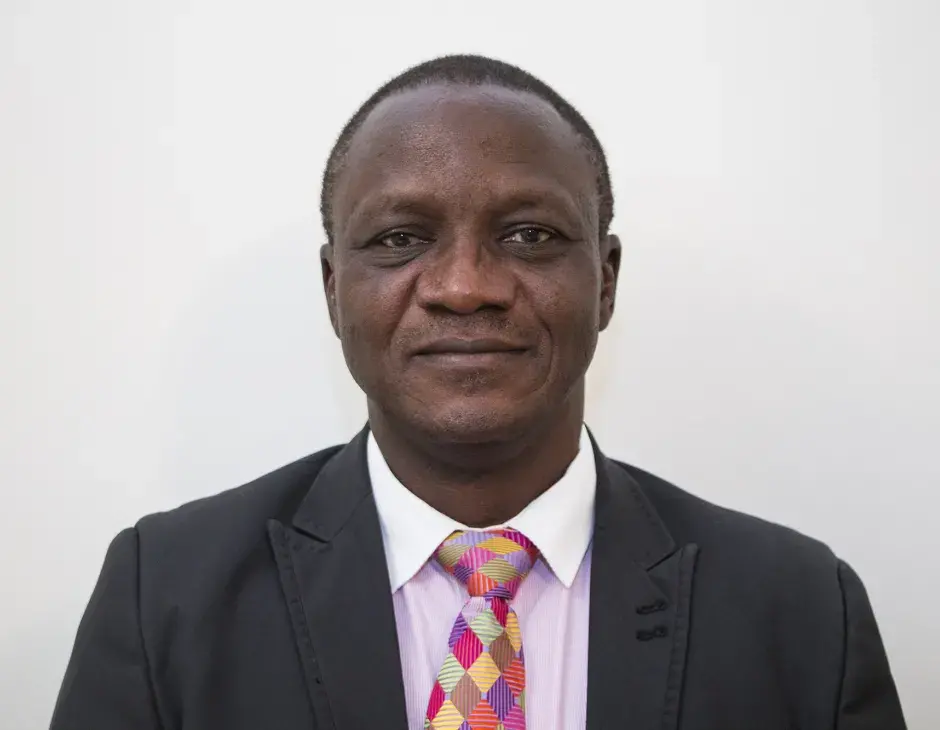This month, feature our Country Expert, Joseph Atang, who works in Nigeria leading our country programme designed to help religious actors set up, successfully run and manage IRD platforms in conflict situations. The platforms support Nigerian religious community leaders and policy-makers in working together on initiatives that are designed to bring about peace and reconciliation in the country.
At present, Nigeria is facing manifold issues that are putting the previously long-standing social cohesion at risk. The combination of conflict, a receding economy and the extremist insurgency group, Boko Haram, is causing violence, resource scarcity and widespread insecurity. Within this context of conflict and social instability, some influential religious and political figures are misusing religion to polarize society for political ends.
According to our County Expert, Joseph Atang: “Most of the conflicts in Nigeria are rooted in resources and psychological needs. People are competing for resources in Nigeria, which has a tremendous effect on their psychological behaviour. This competition is manipulated by some within the political system to polarize Christians and Muslims in order to gain support for their own political ends.”
Nigeria is one of the few countries in which the population is nearly evenly split between Christians and Muslims. However, in communities that were once united in diversity, social cohesion is fraying as tensions between Christians and Muslims are deepening. Hard-line religious rhetoric within the country has led to competition for resources between Christians and Muslims who are more prone to support only candidates who represent their religions, rather than their interests, according to Atang.
For example, in North Eastern, Central and North Western Nigeria, the intra-religious and interreligious and cultural gulf is very deep, and conflicts are highly destructive of lives and property, according to Atang. Conflicts between ethnic groups in the northern and central regions over resources, like the conflict between pastoralists and farming communities, are perceived as conflicts between Christians and Muslims, as the pastoralists are predominantly Muslim and farming communities are predominantly Christian.
Religious divisions have also spread West, according to Atang: “Even though there is a strong presence of both Christianity and Islam in Western Nigeria, the region has experienced relatively few religious crises until recently. Religion is fast becoming an issue in Western Nigeria as well.”
However, Atang is hopeful of interreligious dialogue in Western Nigeria, and in Nigeria as a whole.
“I am hopeful of good interfaith relations through dialogue in Western Nigeria. Western Nigeria is culturally homogeneous, having one language and a common ancestry. Also, with the high level of education, political awareness and independent-mindedness in the region, IRD will be faster in making an impact.”
These conflicts are further compounded by the Boko Haram insurgency, which seeks to radicalize young people to conform to hard-line, intolerant ideologies. However, Atang feels that that the first step to countering it is to bring religious leaders together to find a common stance against radicalization and intolerance.
“Religious leaders must provide a counter-narrative to extremism. They are among the most trusted leaders in their communities and have a great influence on the population.” Atang said.
In this regard, KAICIID is providing technical expertise in conflict intervention, training and coordination and working to bring the religious leaders together to dialogue through the Nigeria Interfaith Dialogue Forum that was established through KAICIID’s Coordinate to Achieve conferences held in September 2016 and January 2017. The Forum will give Christians and Muslims a platform in which they can work together through inter- and intrareligious dialogue activities toward mitigating tensions and conflicts in the country.
“Dialogue results in three realisations that bring about peace. Conflict parties realise similarities in their needs that have not been obvious to them. Parties also come to grips with those differences between and among them for which common ground can be found. Thirdly, conflict parties come to grips with those of their positions and needs that are incompatible and irreconcilable, with which they have to live. In this case, they realise that they have no choice but to coexist in mutual respect,” Atang said.
Joseph Atang coordinated intrafaith and interfaith meetings in September 2016 and January 2017 respectively, the interfaith meeting culminating in the establishment of a national interfaith dialogue platform, the Interfaith Dialogue Forum for Peace (IDFP). Organs of the IDFP are the General Assembly, Board of Trustees, Central Coordination Council (CCC) and Executive Committee who meet annually, quarterly and monthly respectively.
In the coming months, the project will work to strengthen the IDFP by developing a baseline study, building the capacity of the platform members in interreligious dialogue, providing small grants to support initiatives by the platform as well as its member organizations, and providing technical support to the platform and its members.

